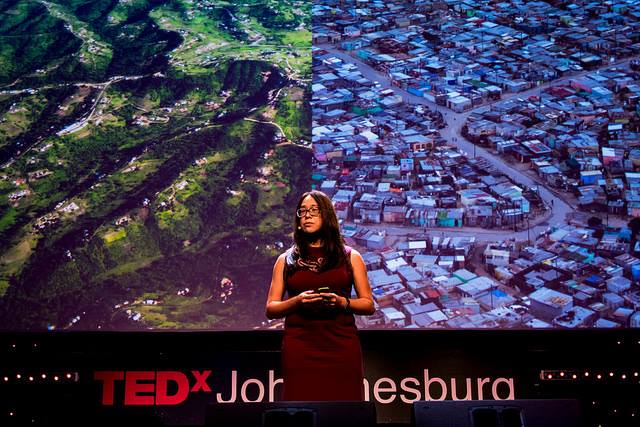Tanya Accone is an innovator and futurist with a vision to share with the world – which she can do through her work as head of UNICEF’s Global Innovation Centre (GIC). Her Instagram and blog are packed with innovative quotes and invitations to join her drive to make the future sustainable and empowered, especially for children and women. Tanya’s focus, and that of the GIC, is on identifying promising and innovative solutions across 224 countries and successfully bringing these ideas to scale, thus delivering on dreams.
‘Scaling’ or ‘implementing at scale’ means ‘to support the widespread replication and/or adaptation of an innovation across large geographies and populations for transformational impact.’
As one of the job vacancy
posts for a role within the GIC states, ‘We support innovative solutions designed by girls, for girls.’ It is known that a major factor in the STEM gender gap across the world is a lack of role models. Research indicates that when women and girls become of successful women in STEM fields, they are more likely to have pro-science career aspirations. When women see other women in science, they are less likely to associate these fields with masculinity and more likely to have confidence in their own skills – particularly when they see women at the leadership level.[GR2]
This understanding informs Tanya’s work. Bringing the leadership skills she exercises within the GIC home to South Africa, Tanya works with Professor Janice Limson, Director of the Biotechnology Innovation Centre at Rhodes University Both women were students at Rhodes University in the early 1990s, and thirty years later, as female leaders in the STEM field, they saw not only the chance to create innovations in biotechnology to save lives but also opportunities to encourage the participation of young female scientists and promote more diversity in science and technology.
The GIC has supported Professor Limson’s work since 2015, and her diverse team has been developing new types of diagnostic testing that could be used in remote areas at a low cost. Professor Limson currently heads up a group of scientists who, with UNICEF’s support, are building innovative, easy-to-use tests for HIV, pregnancy, and malaria. This partnership brings innumerable benefits, both tangible and intangible. As Accone stated in an article about a visit, she made to Rhodes in 2019: ‘Clearly, these tests have the potential to be a game changer when it comes to testing and treating vulnerable women and children around the world.’ As the travel restrictions around Covid-19 eased, Ms. Accone returned to her alma mater in March 2022 to spend time with Professor Limson and her team, almost half of whom are women. Led by these two powerhouses in STEM research, the team provides the mentorship and visibility needed to provide a clear path for girls and women into STEM fields.


